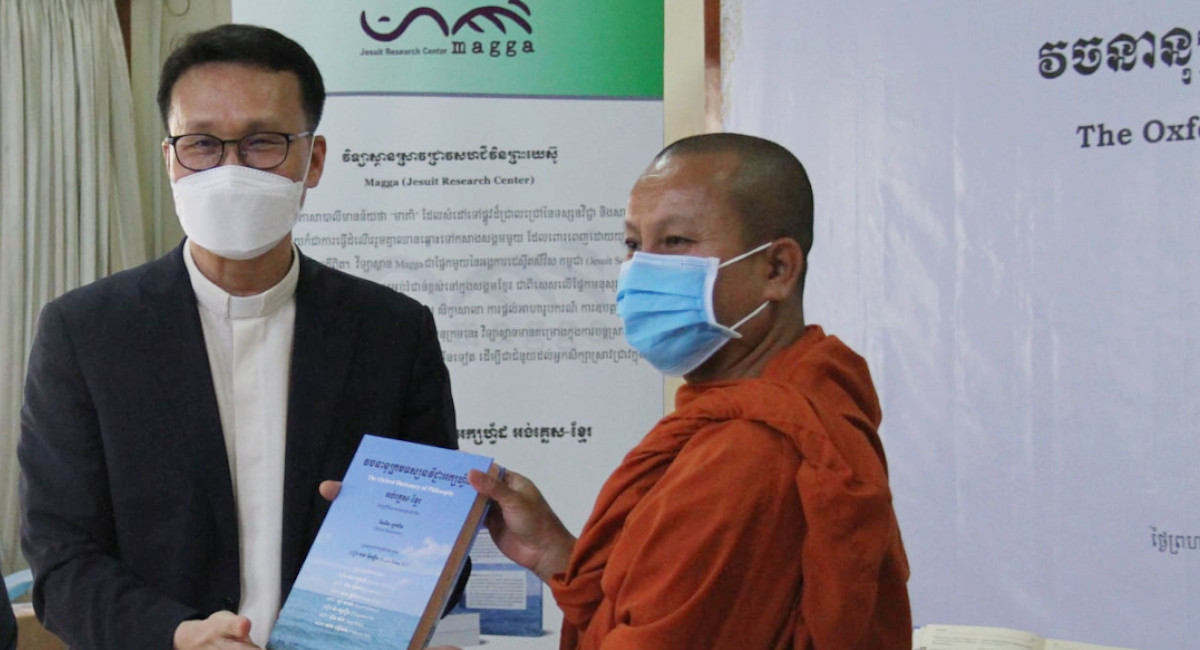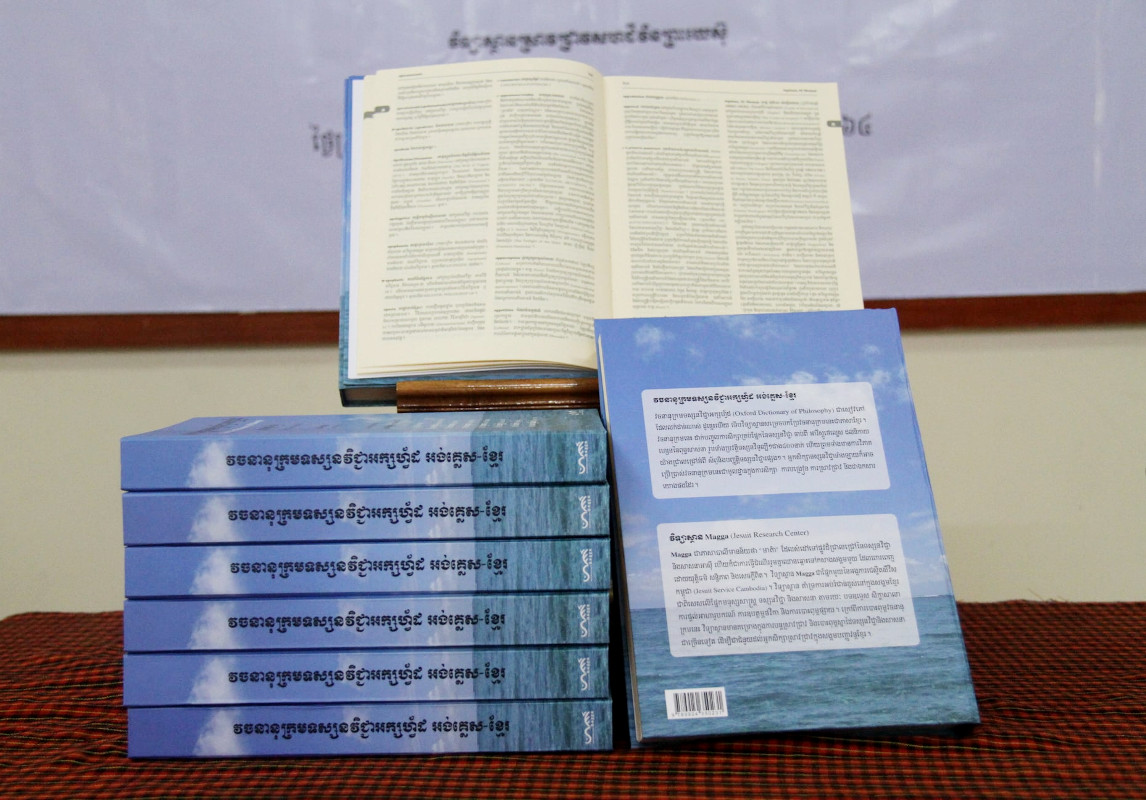
The Magga Jesuit Research Center in Phnom Penh has published a Khmer translation of the Oxford Dictionary of Philosophy to help students and researchers understand the fundamental concepts of Philosophy in their local language.
 Despite the high number of Cambodian students majoring in the field, there is a dearth of Philosophy textbooks in Khmer. “Almost all philosophy textbooks in the libraries, including other fields of humanities and social sciences, are in English,” says Fr In-gun Kang SJ, the centre’s director and the book’s chief editor.
Despite the high number of Cambodian students majoring in the field, there is a dearth of Philosophy textbooks in Khmer. “Almost all philosophy textbooks in the libraries, including other fields of humanities and social sciences, are in English,” says Fr In-gun Kang SJ, the centre’s director and the book’s chief editor.
Most Cambodian students have limited English proficiency and have great difficulty reading and understanding in English. Publications by local authors are also few as lecturers work long hours teaching, leaving little time and resources for writing articles and books.
The Magga Center, which is part of Jesuit Service Cambodia, has been a supporter of higher education in the country, particularly in the fields of humanities, philosophy, and religion. They published The Foundation of Philosophy in 2006 and A History of Western Thought in 2008, both philosophy textbooks in Khmer written by local professors and foreign scholars including Fr Kang and Irish Jesuit Fr Ashley Evans SJ, who spent many years as a missionary in Cambodia and helped in the early years of the dictionary translation project.
In fact, the project was 15 years in the making. Among many other setbacks, it was not easy to find qualified Khmer scholars and translators who were not already engaged with many other activities. It was also a challenge to undertake something that had never been done before. “Since there had been no previous translations of the philosophical concepts in Khmer, we struggled with choosing the proper terms and even creating new words for many parts of the dictionary,” says Fr Kang.
The Khmer translation of the Oxford Dictionary of Philosophy, which was launched in July, has been well received not just by teachers in the secondary schools, university lecturers and students, and individual researchers, but also by those with a general interest in philosophy.
“Surprisingly many ordinary people have rushed to get our dictionary. This seems to show how much the Khmer people thirst for a high quality book in Khmer,” says Fr Kang. Several copies have been donated to the national library and the libraries of universities and research institutions in Cambodia.
With the publication’s success, Fr Kang says the centre plans to publish a series of philosophical and spiritual books for Khmer intellectual readers in the near future.

